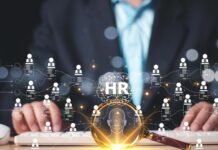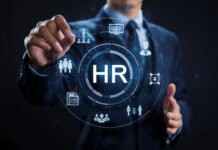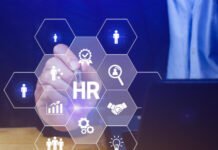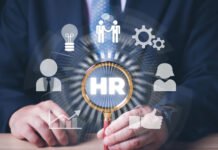- 63% of US HR leaders and 56% globally are under pressure to force a ‘return-to-office’ (RTO) policy, yet 81% believe that forced RTO isn’t the right call
- 52% of US-based People leaders are seeing cultural divides in the workplace, and 51% say this is threatening DEI efforts. This trend is strongest in the US, although it is still seen in Europe.
- 73% of HR decision-makers are planning workforce restructuring due to AI, with 64% concerned about a major ‘AI skills gap’. Employee resistance to AI is the #1 blocker to progress right now.
Leapsome, the AI-powered people platform for HR excellence, today launches its 2025 HR Insights Report, developed in partnership with leading research agency Opinium. Based on a survey of 1,000 HR decision-makers across the US, UK, Germany, and the Netherlands, the report spotlights the growing pressure on People teams to juggle top-down mandates, widening cultural divides, and the rapid rise of AI — all while being tasked with driving productivity and influencing key business decisions.
“HR teams are being pulled in every direction — but they’re not just holding things together, they’re guiding the business forward,” says Luck Dookchitra, VP People at Leapsome. “They’re using people data to lead high-stakes conversations — and pushing back when leadership forgets what actually drives performance: trust, inclusion, and alignment.”
Key insights from the report:
- Cultural shifts are threatening people-first HR:
A staggering 92% of HR leaders report internal resistance when championing people-centric initiatives like DEI, flexibility, and well-being. Return-to-office mandates are especially contentious — 56% feel pressured to enforce them, despite 81% considering other working models more effective for collaboration. - HR is under pressure to prep the workforce for AI — fast:
73% of companies are restructuring roles to integrate AI, with 85% of HR leaders involved expecting major changes this year. But People experts are already seeing signs of employee resistance, with 64% reporting AI skills gaps as an urgent problem. - As HR’s role expands, so does its power to drive change:
Nearly two-thirds of HR leaders say they’re accountable for building high-performing teams — the number one priority for CEOs in 2025. With 85% now owning or influencing key business decisions, the role has grown far beyond support. Today, HR is guiding strategy, driving outcomes, and being measured by its impact.
“The future of HR isn’t just about automation or efficiency,” adds Dookchitra. “It’s about using people insights to shape how business gets done — and leading with the confidence that comes from data, not just instinct.”
From economic pressure to political polarization and AI disruption, Leapsome’s 2025 HR Insights Report offers a rare glimpse into how today’s business climate is reshaping the world of work — and what it will take to navigate what comes next.
Explore HRtech News for the latest Tech Trends in Human Resources Technology












